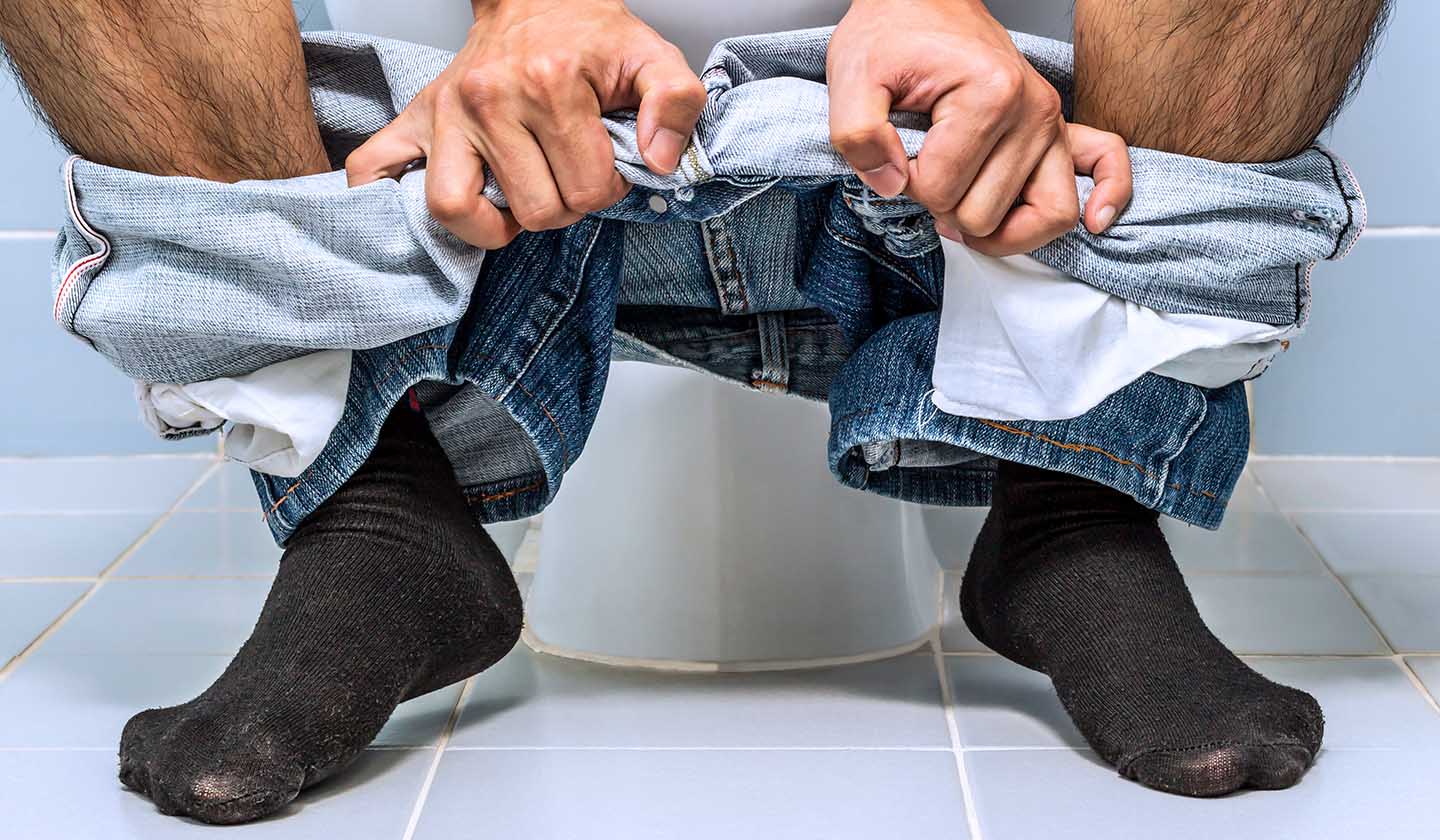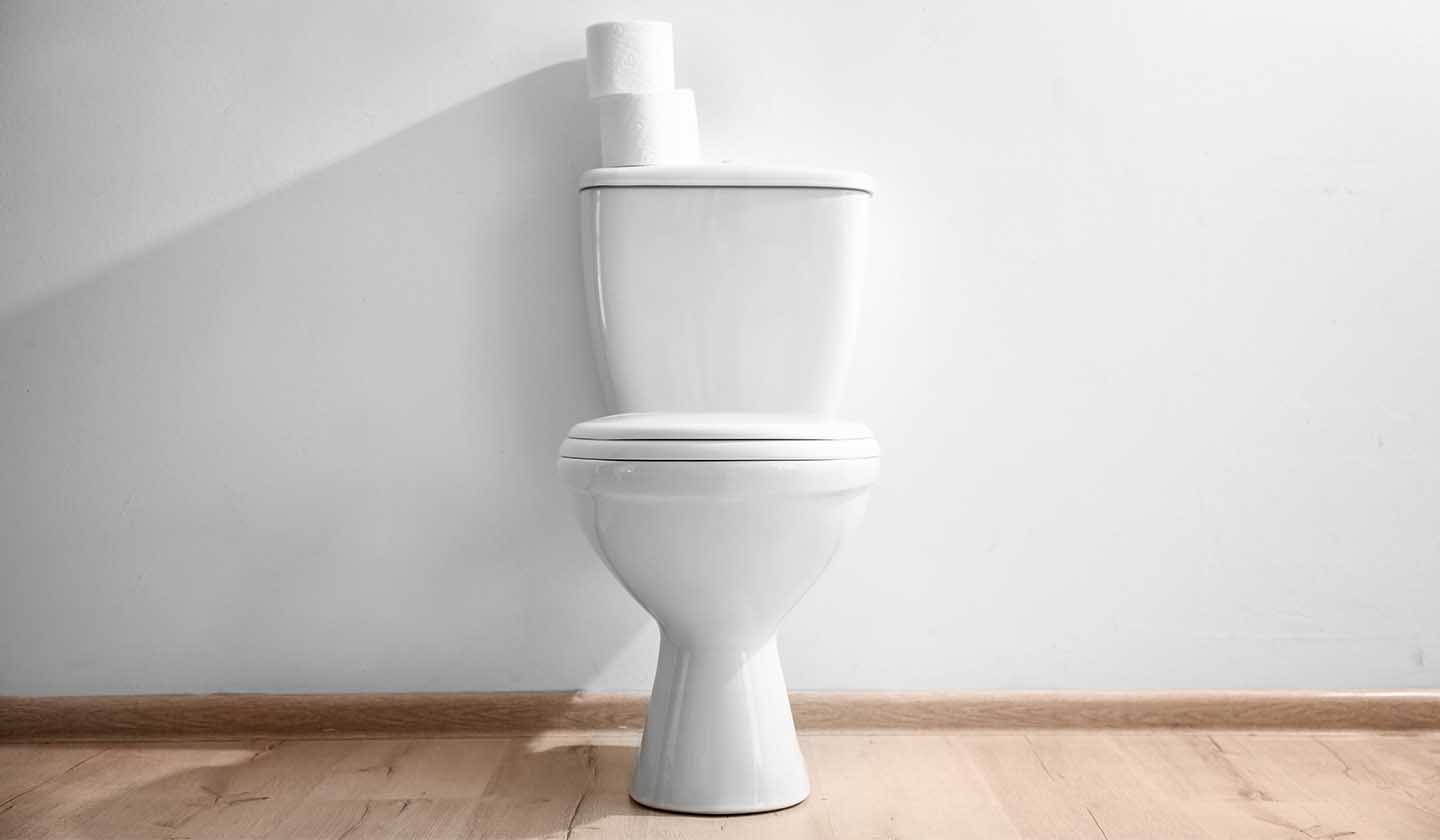Digestive system
Constipation - When going to the toilet becomes a torment

What is constipation?
Constipation is a disorder of the intestinal system that usually occurs when bowel movements are tough or dry or happen less often than normal. Each person has a different routine and thus, the following situations could mean you are suffering from constipation:
- Decrease in the number of bowel movements during the week
- Painful and effortless evacuations
- Hard and small stools
- Flatulence and abdominal discomfort

Causes that can lead to constipation are:
- Age
- Pregnancy and breastfeeding
- Lack of physical exercise
- Changes in daily routine
- Food - lack of fibre and dehydration
- Defer or hold the urge to go to the bathroom
- Use of medicinal products
- Diseases - irritable bowel syndrome, hypothyroidism, diabetes, Parkinson's disease, sclerosis, depression

Treatment
Pharmacological treatment involves the use of laxatives which should always be a temporary measure as it changes the normal functioning of the intestine.
There are several types of laxatives that can have different effects on the intestine.
- Bulk-forming laxatives
These are the treatment of choice in cases of chronic constipation since they reproduce the natural evacuation mechanism as close as possible to the physiological one.
They can be found in the form of granules and are composed of fibres capable of retaining water in the intestine, increasing the volume of stools that stimulate the natural contractions of the intestine.
The use of this type of laxatives requires an abundant intake of fluids. As for acute constipation, these medicinal products should not be chosen because they can take 2 to 3 days to take effect.
The most frequent adverse effects are abdominal distension and flatulence.
- Osmotic laxatives
These laxatives intensify water accumulation in the faeces favouring its softening and expulsion. They can be found in the form of syrups or powders, which can be used pure or diluted in water. Osmotic laxatives act faster than the previous ones, but in case of acute constipation they should also not be used.
- Contact laxatives
This type of laxative acts by irritating the intestinal mucosa, stimulating its contraction by pushing the stool. They can be found in the form of tablets, drops, suppositories or microenemas. Suppositories work faster, about 30 minutes, while pills and drops take between 6 and 12 hours to take effect, therefore it is advisable to take them at night so that you can go to the bathroom in the morning. The continuous use of these laxatives may lead to habituation or lazy bowel syndrome, sometimes wears off. These should not be the treatment of choice in case of chronic constipation; instead, they should only be used for short periods of time.

Preventive measures
There are several measures that can be taken to treat and prevent constipation in a natural way:
- Eat a diet rich in fibre from vegetables and fruits and cereals
- Avoid fats and sugar
- Increase water intake
- Avoid having a sedentary life and practise physical exercise regularly
- Have a daily bathroom routine
- Strengthening of intestinal flora by taking prebiotic and probiotic supplements
Sources
iSaúde
Farmácia Distribuição Magazine
Também lhe poderá interessar
Digestive system
Constipation in children. A headache for parents
Digestive system






